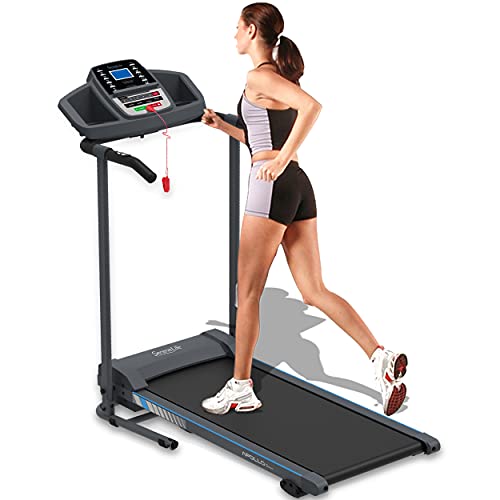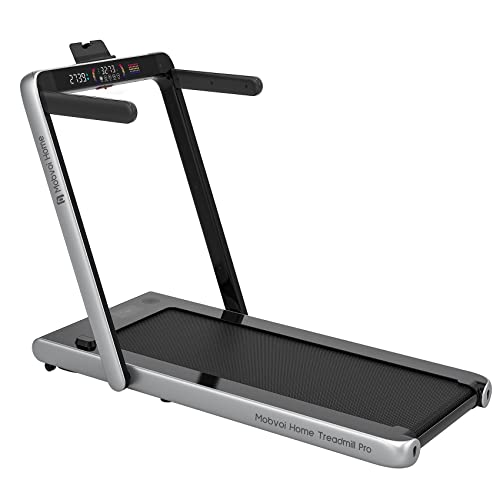Treadmill Incline Benefits
Walking at a treadmill incline will increase the intensity of your workout and is more energy-efficient than regular treadmill walks. It is nevertheless important to track your fitness and consult a physician before attempting higher incline training levels.
Inline treadmill walking targets various muscles in your legs, such as your glutes, quads and the hamstrings. This is a great treadmill workout to build and tone these muscles, while providing a great cardio workout.
Increased Calories Boiled
A treadmill incline allows you to intensify your exercise by increasing your heart rate and burning more calories. In a study, researchers discovered that running on an inclined treadmill increased the "energetic cost" of the exercise by 10 percent when compared to flat running. This increased the amount of calories burned during a workout, and could be a viable method to lose weight.
Treadmill incline exercises target different muscles from walking or running flat. The incline forces your quadriceps to work harder which results in increased strength and tone of the lower body. Additionally, the incline may help you build endurance for your exercise in the outdoors, such as hiking or running by challenging your body to adapt to the changing terrain.
It's important that you start slowly and increase the amount gradually, based on your fitness level. Intensely stepping in could force yourself further than your body is able for and may lead to injuries, like knee pain or back pain.
The incline of a treadmill increases the intensity of a workout because you are working against gravity. It is an ideal option for anyone seeking to improve their cardiorespiratory fitness without causing excessive impact on their joints. In fact, a study conducted in 2013 revealed that walking on an incline can burn more calories per minute than regular treadmill running at the same speed.
If you're just beginning to learn about incline walking or have any preexisting conditions, it's best to consult your doctor or physical therapist prior to deciding to start a
small treadmill with incline incline exercise. It's also important to wear proper shoes, maintain your posture, drink plenty of water and stretch prior to and following your workout to reduce your risk of injury.
No matter if you're a beginner runner or an experienced runner with years of experience, adding an incline to your treadmill workout will assist you in reaching new heights. By gradually increasing the incline on your treadmill, you will gradually build endurance and muscle strength and prepare yourself for the challenge that is uneven outdoor terrain.
Increased Muscle Tone
You can improve your glutes, butts legs and hips by including treadmill incline walks into your exercise routine. When you run or walk on an inclined surface, your muscles will have to work harder to propel forward. This burns more calories than exercising on a flat floor. Walking or running on an incline can also increase your cardiovascular fitness and stamina by making your heart work harder to pump blood to your working muscles. If you are training for a race with hills or mountains, using the incline feature on your treadmill can assist you in completing your workout.
If you're a novice to walking at an incline, it's recommended you begin with a low degree of incline (around 1 % or 2) and gradually increase the level of incline as you get used to the exercise. This will decrease the risk of injury, and ensure that you are able to perform the exercise without putting too much stress on your joints or muscles.
Interval training is an excellent method to make your exercises more challenging and enjoyable as you become more comfortable with an incline walk. This will make your training more challenging and enjoyable while also helping you to prevent injuries. Try switching between periods of steeper slope and flat or a lower slope. For instance, you could walk at an incline of 2% for 30 seconds, then several minutes of flat or a lower slope.
Treadmill incline walking can be an excellent alternative to outdoor running since it provides the same cardio-respiratory benefits, while decreasing the strain on your joints. Walking on
do all treadmills have incline that are inclined can target the muscle groups in your backside more effectively than squats while also burning calories and improving your posture and balance.
Although incline walking is an excellent way to build your cardiorespiratory endurance, it's important that you continue to include other types of exercises in addition, such as interval training and strength training. Incorporating various exercises into your routine can ensure that your workouts remain entertaining and enjoyable, which can keep you motivated to workout regularly.
Increased Endurance
By incorporating incline training in your treadmill workouts, you can increase your endurance. This is due to the fact that it replicates outdoor terrains and activates more muscles, specifically the quads and calves. In addition, the greater gradient will boost your metabolic cost and require more energy to complete a workout, which makes it more challenging overall. This will prevent your body from getting used to the same routine, and slowing your progress or even plateauing.
Intensifying the slope of your treadmill workout is an excellent method to add variety to your fitness regimen. Interval training and various exercises can keep your body motivated and challenging it. The treadmill's incline challenges your core muscles, and strengthens your knees and ankles in a way that is distinct from running on flat.
If you're new to training at an incline, start with a lower level and gradually work your way towards a higher incline. You could risk injury if you begin to jump into high incline levels early.
A steep incline can be utilized by more experienced runners or hikers to train for mountainous and outdoor conditions. Incorporating a treadmill incline in your workouts can allow you to build the endurance you need for these types of exercises without causing joint strain or soreness.
If you are planning to incorporate an incline in your treadmill workout, make certain to practice proper posture. Maintaining a good posture, looking forward and landing on the balls of your feet will ensure that you're working your leg muscles as much as you can while exercising. Also, make sure to stretch your legs following the workout to avoid sore muscles and tight muscles.
The benefits of a treadmill incline are numerous and can make your workouts more enjoyable and efficient. It is important to keep track of your heart rate and stay within your range of target during your incline workouts in order to prevent overtraining. Also, it's essential to have a quality treadmill with a comfortable belt and base design when you use the incline feature.
Reduced Joint Impact
An increase in the incline of your treadmill allows you to get the benefits of a cardiovascular exercise without putting too much stress on your joints. Running or walking at a slight incline engages different muscles, which can reduce the impact on your ankles and knees. An incline in the treadmill is a great way to tone your muscles, and still get the cardio challenge you need.
If you're new to incline training you should always start off slowly and gradually increase your incline level until you reach the point at which you are overwhelmed by the workout but not so much that it causes excessive joint stress. This will allow you build up to a high-intensity workout without risking injury.
treadmill for small spaces with incline inclines are often utilized for running or walking intervals, which provide an exercise that is cardiovascular and also targeting various muscles and improving your balance. Geoffrey Burns is a biomechanics researcher and sports scientist at the University of Michigan. He recommends starting with a 5% incline for interval walks, and alternate between running for a minute and walking for a few minutes. This will help you build leg muscles that are most likely to strain and increases knee joint stability.
If you decide to walk or run on a steeper slope be sure the slope is less than 10%, which is close to the natural slope of most hills. A steeper slope places additional stress on the muscles in your lower body and can result in injuries, like patellar tendonitis or iliotibial band syndrome. This can also lead to tight quads and Hamstrings which can cause knee pain.
The treadmill's incline mimics the process of climbing uphill. It takes more energy to run on a flat surface and helps you burn calories. It also assists you to build stronger legs. Using a treadmill incline can also help you lose weight by placing a greater focus on burning calories through aerobic exercise instead of burning carbohydrates and fat.




